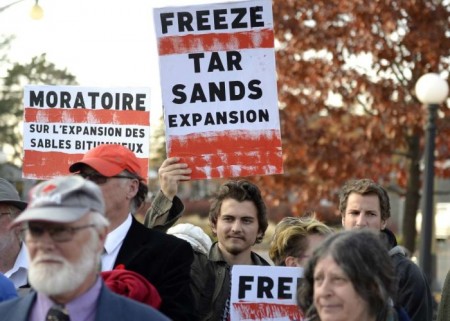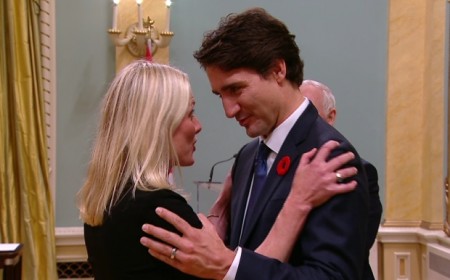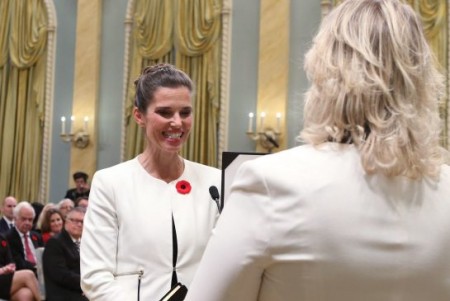November 6, 2015 – Almost three weeks ago Canada held a federal election with the results ending Stephen Harper’s prime minister-ship. You may recall from some of my previous postings here that Mr. Harper viewed climate change through a lens clouded with output from the oil sands of Western Canada. His response to pricing carbon was in two words “job killing.” But the Canadian population expressed through polls considerable concern about climate change and Canada’s approach to combating it, with a majority not sharing the opinions of their Prime Minister. They unseated his government and voted in one that put the issue of climate change, evidence-based decision making and science on the front burner.
In an amazing move the new government created a position for science at the cabinet table. Kirsty Duncan, a medical geographer who has made contributions to the Intergovernmental Panel on Climate Change reports, and who wrote a book about the origins of the Spanish flu epidemic that struck at the end of World War One, was named Minister of Science (see her picture below).
Ms. Duncan isn’t the only Minister in the government to see the word “science” in her title. Navdeep Bains (pictured below) was named Minister of Innovation, Science and Economic Development. Formerly this portfolio was the Ministry of Industry. With “innovation” and “science” described in the title, it is expected that this Ministry will take on a more aggressive role in seeking disruptive innovation to grow the Canadian economy.
To round up the focus on science Catherine McKenna was named Minister of the Environment and Climate Change. With three ministries engaged in science, as drivers of policy, opinion and ideology have lost out to evidence-based decision making. In one Twitter comment a tweet stated “The new minister of science is a scientist. She may, perhaps, accept evolution. Or even understand it. Radical.”
And in case this was missed by readers of this blog posting from around the world, the new government’s cabinet consists of 15 men and 15 women. When asked why the gender balance, the new Prime Minister, Justin Trudeau, responded, “Because it’s 2015.”
In the image below, Prime Minister Trudeau is seen congratulating Catherine McKenna, Canada’s new Environment and Climate Change Minister.
With COP21 next month Minister McKenna has her work cut out for her. Under the old government Canada’s federal approach to climate change was sectorial with the exception of fossil fuels where the government chose to set no carbon reduction targets. Instead sectors like energy generators and transport received reduction target guidelines. The end result was a country incapable of meeting any of its 2020 carbon reduction targets.
The new government has pledged to bring all sub-jurisdiction players (provincial premiers, city mayors, etc.) together within the next 90 days to develop a carbon reduction action plan where each jurisdiction reflects its regional sensitivities. The 2020 targets need revisiting and more aggressive goal setting should come out of the meeting of minds. At the same time Canada’s assistance to the global community, particularly nations that are front line victims of climate change, will see action. Canada at COP21 will be represented not just by Minister McKenna, but also the Prime Minister, the Minister of Foreign Affairs, all provincial premiers, and the leaders of all the opposition parties in Parliament. This is unprecedented and a welcome change in governing style that hopefully those in the 350.org and AVAAZ.org movement will find reassuring in the days to come as they camp out in front of the Prime Minister’s residence in the capital, Ottawa, as a reminder that action on climate change is no longer to be put off.












